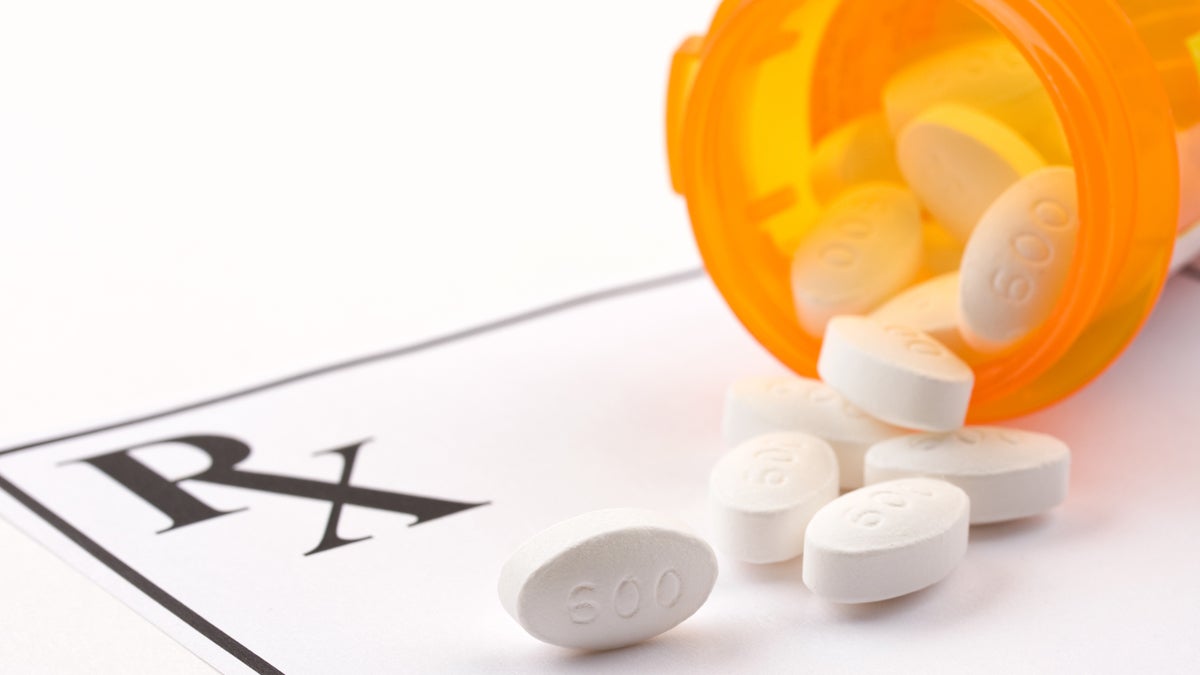GlaxoSmithKline will stop paying doctors to promote drugs
 Photo via ShutterStock) " title="ssrxx1200" width="1" height="1"/>
Photo via ShutterStock) " title="ssrxx1200" width="1" height="1"/>
(Photo via ShutterStock)
GlaxoSmithKline, the British drugmaker with a big footprint in the Philadelphia region, intends to stop paying doctors to promote its drugs. The company also will no longer pay sales representatives based on prescription sales.
Starting in August, the sunshine provision of the Affordable Care Act requires drugmakers to report payments to physicians.
There was logic to recruiting doctors to teach other doctors about prescriptions, but conflicts of interest made it thorny, according to Andrew Peterson, dean of the Mayes College of Healthcare Business and Policy at the University of the Sciences.
“The original thought was physicians educating physicians, peer-to-peer education, was the right thing to do — and there is clear value from health care professional to health care professional,” said Peterson.”But when that health care professional may be unduly influenced by a sponsor of a drug, that’s where the question comes into play.”
Providers don’t have time to research it all themselves, argued Jerry Avorn, a Harvard School of Medicine professor who runs a nonprofit to educate physicians about pharmaceuticals.
“What we really need is somebody who is not getting paid by any drug company to give us the straight scoop about how good or bad a drug class is without having to worry about an ulterior motive going on,” he said.
Doctors who promote drugs have been a source of grief for the company, which is fined when its drugs are marketed with false information, said Albert Wertheimer, a professor of pharmacy at Temple University.
“It’s really dangerous when you give a authorization to a physician to go out to a local medical society and speak. They can’t monitor everything the guy says,” Wertheimer said.
“If he says anything at all beyond what the approved labeling is, the company is the one that’s fined and is guilty,” he added.
Last, year, GlaxoSmithKline paid $3 billion to settle a case over improper marketing practices.
Mary Anne Rhyne, a GlaxoSmithKline spokeswoman, said the company headquartered in London will continue to offer educational grants to physicians, separate from its promotional efforts.
From now on, she added, it will use in-house medical personnel as education resources.
The big question remaining is, will other drugmakers follow suit?
Wertheimer thinks so.
“GlaxoSmithKline is up in the top 10 worldwide pharmaceutical companies,” he said. “So what they do, everyone else is going to scrutinize and look at a with a magnifying glass.”
WHYY is your source for fact-based, in-depth journalism and information. As a nonprofit organization, we rely on financial support from readers like you. Please give today.

